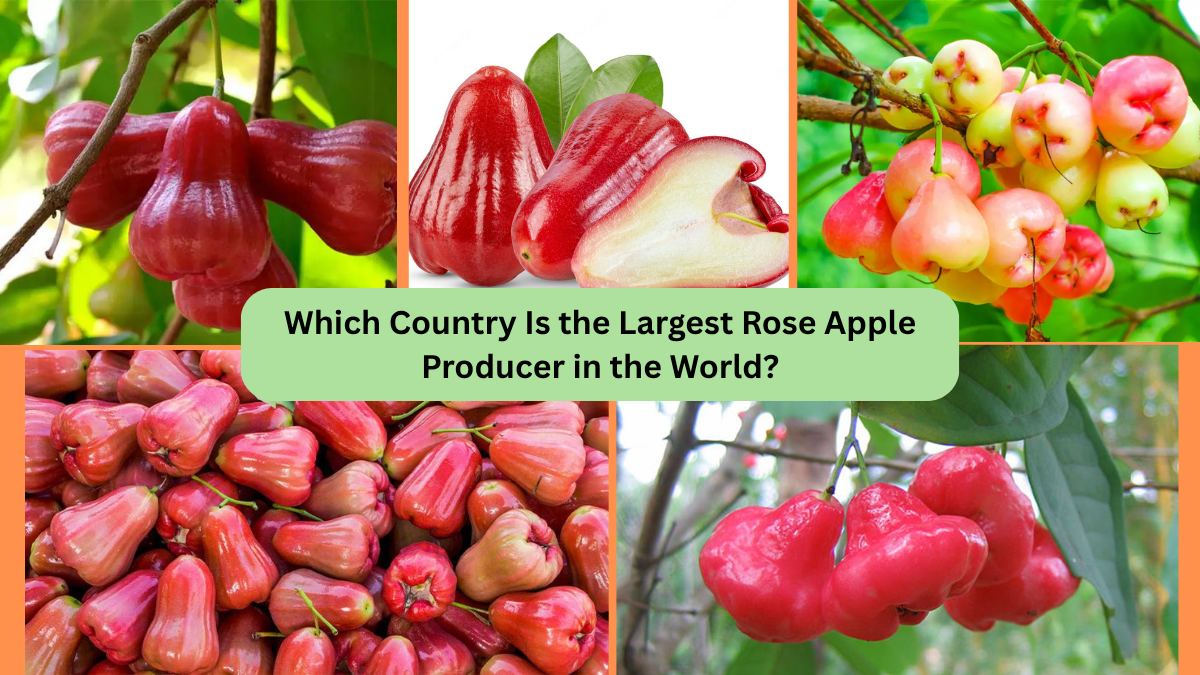Rose apple, scientifically known as Syzygium samarangense, is a luscious, bell-shaped tropical fruit known for its crisp texture and subtle floral aroma. Often found in home gardens and local markets across Asia and the Pacific, this refreshing fruit is a cherished delicacy during the hot, humid seasons. But which country leads the world in rose apple production? In this detailed article, we’ll uncover the history, cultivation, health benefits, and identify the largest producer of rose apples globally.
What Is Rose Apple?
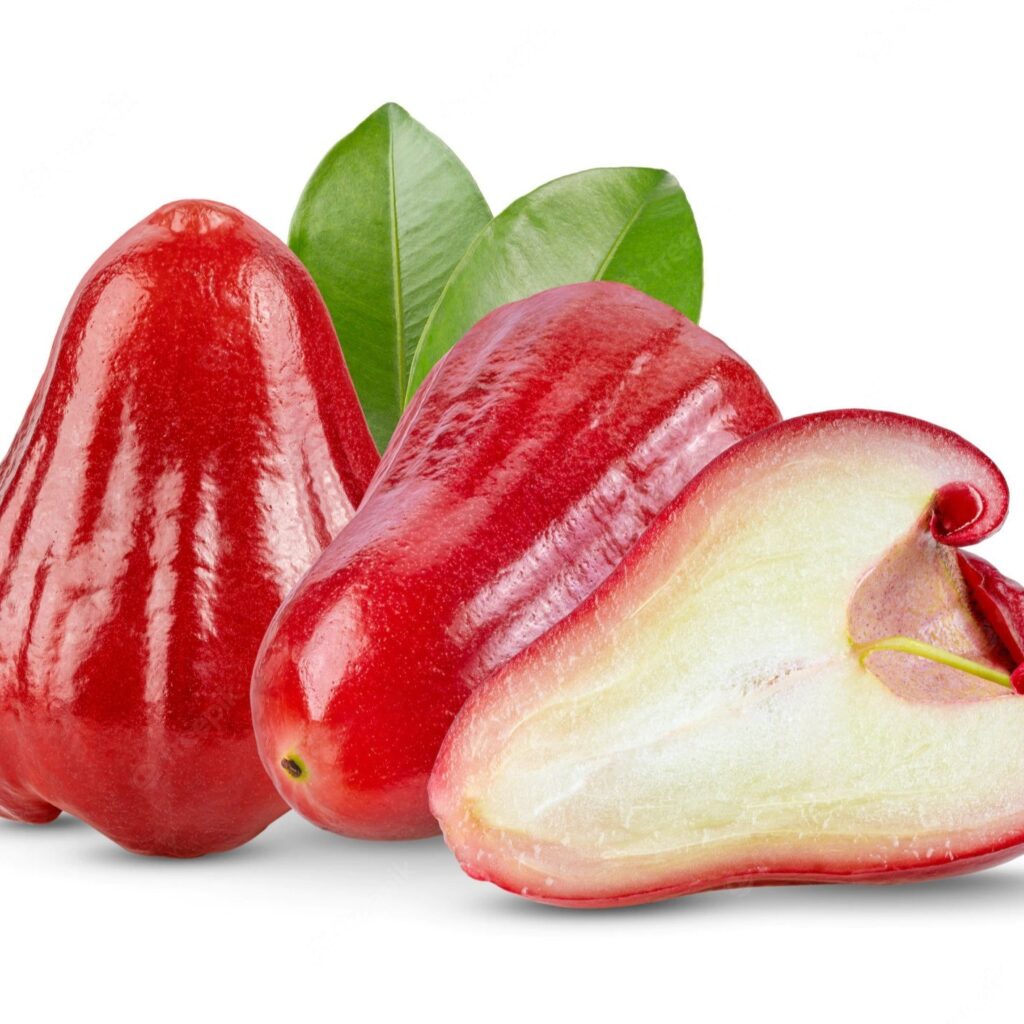
Rose apple, also known as water apple, wax apple, java apple, or jambu air, is a tropical fruit belonging to the Myrtaceae family. Despite its name, it bears no relation to the conventional apple. The fruit is typically pear or bell-shaped, with waxy, smooth skin ranging from pale green to deep crimson.
The fruit’s crisp, juicy flesh is mildly sweet with a subtle rose-like fragrance, making it a popular thirst quencher in tropical regions. The tree is evergreen, thriving in warm, humid climates with abundant rainfall.
The Historical and Cultural Importance of Rose Apple
Rose apple trees have been cultivated in Southeast Asia and the Pacific Islands for centuries. Apart from being a popular fruit, it holds cultural significance in many communities. In countries like Indonesia and Thailand, rose apples are often served at religious ceremonies and family gatherings.
In Ayurveda and traditional Asian medicine, the fruit and its seeds are valued for their cooling and digestive properties. The wood of the rose apple tree is sometimes used in local construction and furniture making due to its durability.
The Largest Rose Apple Producer in the World: Indonesia
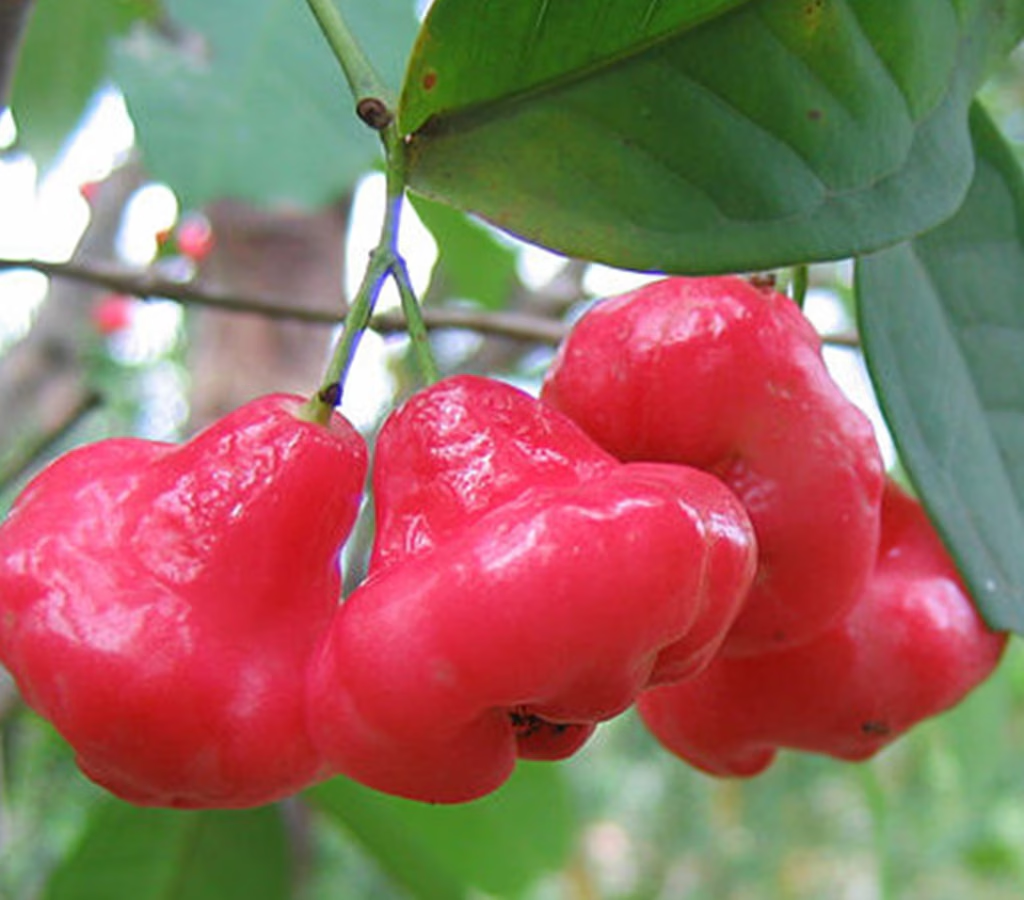
Indonesia is widely recognized as the largest producer of rose apples in the world. The country’s tropical climate, fertile volcanic soils, and longstanding agricultural traditions make it an ideal location for cultivating this fruit on both commercial farms and small-scale homesteads.
Why Indonesia Leads in Rose Apple Production
1. Native Habitat and Traditional Cultivation: Rose apples are believed to have originated in the Malay Archipelago, encompassing modern-day Indonesia. This native status, combined with centuries of cultivation, has solidified Indonesia’s leadership in production.
2. Favorable Climate: Indonesia’s warm, humid, and tropical environment, paired with rich, well-drained soils, allows rose apple trees to thrive and bear fruit multiple times a year.
3. Large-Scale and Backyard Farming: From large plantations in Java and Sumatra to backyard gardens in Bali and Sulawesi, rose apple cultivation is widespread. The fruit’s popularity as a refreshing snack and its demand in local markets sustain its extensive growth.
4. Culinary Integration: In Indonesia, rose apples are eaten fresh, added to fruit salads like rujak, pickled, or blended into juices. Their subtle sweetness and crisp texture make them a favorite ingredient in both traditional and modern dishes.
Other Major Rose Apple Producers
While Indonesia dominates the global rose apple market, several other countries also contribute significantly:
Thailand: Thailand is a major grower of rose apples, particularly in central and southern provinces. Thai varieties like Chompoo are known for their size and sweetness.
Malaysia: Malaysia cultivates a variety of rose apples, often exporting them to neighboring countries. The fruit is commonly found in wet markets and roadside stalls.
India: In southern and coastal India, particularly in Kerala, Karnataka, and Tamil Nadu, rose apples are grown in home gardens and farms, valued for their cooling effect during summer.
Sri Lanka and the Philippines: Both countries cultivate rose apples on a smaller scale, primarily for domestic consumption.
Health Benefits of Rose Apple
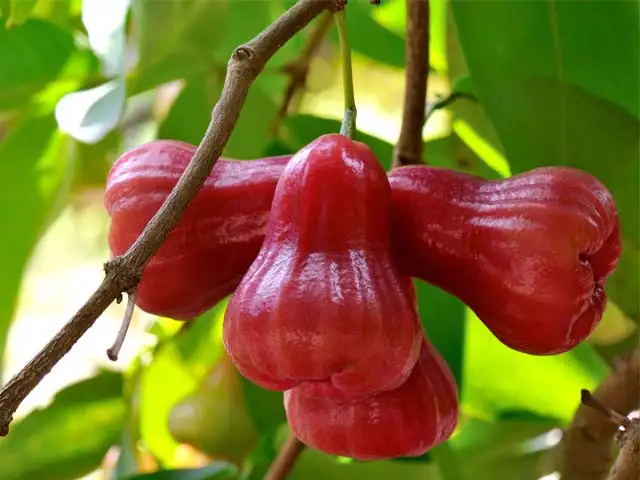
Rose apples offer a host of health advantages:
- Rich in Antioxidants: Contains polyphenols and vitamin C that combat oxidative stress.
- Natural Hydration: High water content makes it a natural thirst-quencher.
- Supports Digestion: Contains dietary fiber aiding in digestion and gut health.
- Controls Blood Sugar: Traditional medicine uses rose apple for managing blood sugar levels.
- Anti-Inflammatory Properties: Helps reduce inflammation and has mild antimicrobial benefits.
- Good for Skin: Its vitamin-rich composition supports skin health and rejuvenation.
Culinary Uses of Rose Apple
Rose apple is enjoyed in diverse culinary applications across Asia:
- Eaten Fresh: Crisp, juicy, and mildly sweet — ideal as a summer snack.
- Rujak: A traditional Indonesian fruit salad with sweet-spicy dressing.
- Pickles and Chutneys: Preserved with spices and vinegar.
- Juices and Smoothies: Blended into refreshing beverages.
- Desserts: Used in fruit tarts, jellies, and compotes.
Challenges in Rose Apple Production
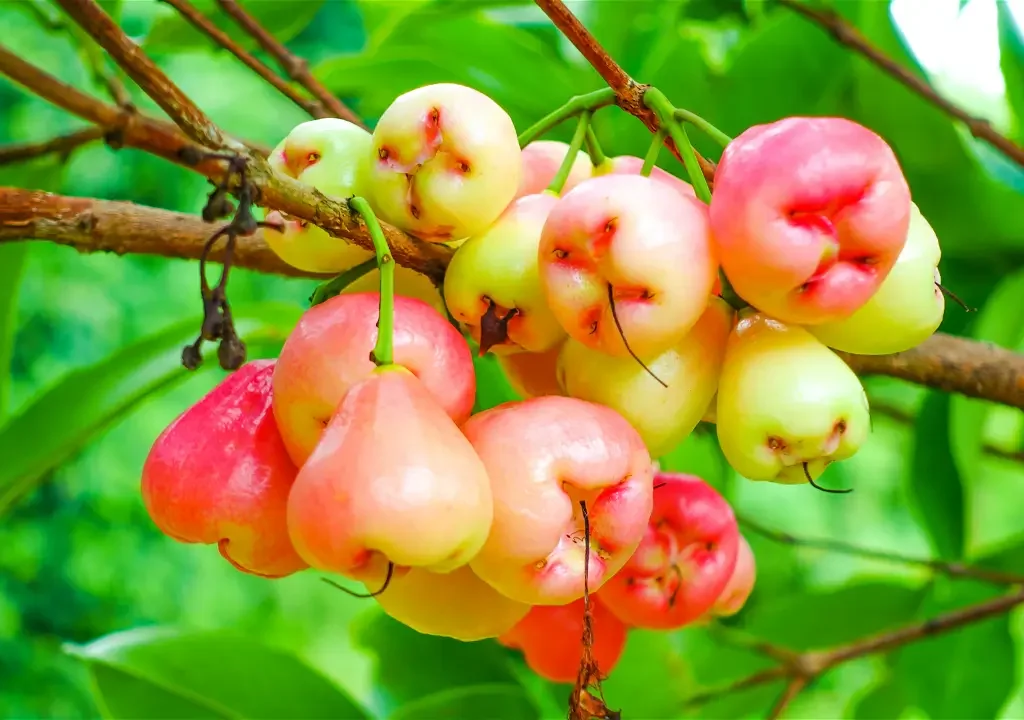
Despite its popularity, rose apple farming faces several challenges:
- Seasonal Harvest: Most varieties fruit seasonally, limiting year-round supply.
- Perishability: The fruit is highly perishable and must be consumed or processed quickly.
- Pest and Disease Vulnerability: Susceptible to fruit flies and fungal infections.
- Limited Export Markets: Due to its delicate nature and short shelf life.
Future Prospects and Global Demand
With the global trend leaning towards exotic and functional foods, rose apple holds considerable promise in the international market. Value-added products like rose apple juice, dried slices, and herbal supplements are gaining attention for their health benefits.
As interest in tropical fruits rises, Indonesia and other Southeast Asian nations are well-positioned to expand their export reach. Sustainable cultivation practices and improved storage solutions could further enhance the fruit’s market potential.
Conclusion
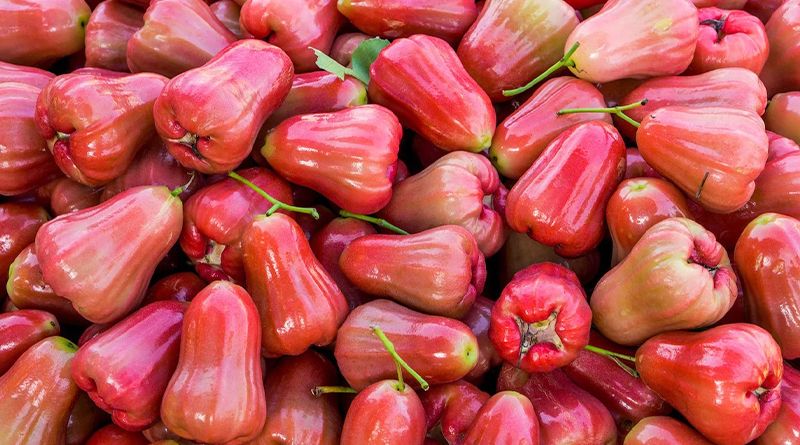
Indonesia’s rich agricultural heritage, favorable climate, and deep-rooted culinary traditions have made it the world’s largest producer of rose apples. From backyard gardens to commercial plantations, rose apples flourish across the archipelago, enriching diets, traditions, and local economies.
While countries like Thailand, Malaysia, and India also contribute to global production, Indonesia’s scale, variety, and cultural integration remain unmatched. As awareness of rose apple’s health benefits and culinary versatility grows, it holds exciting potential for both regional and international markets, carrying forward a legacy that celebrates nature’s tropical bounty.
